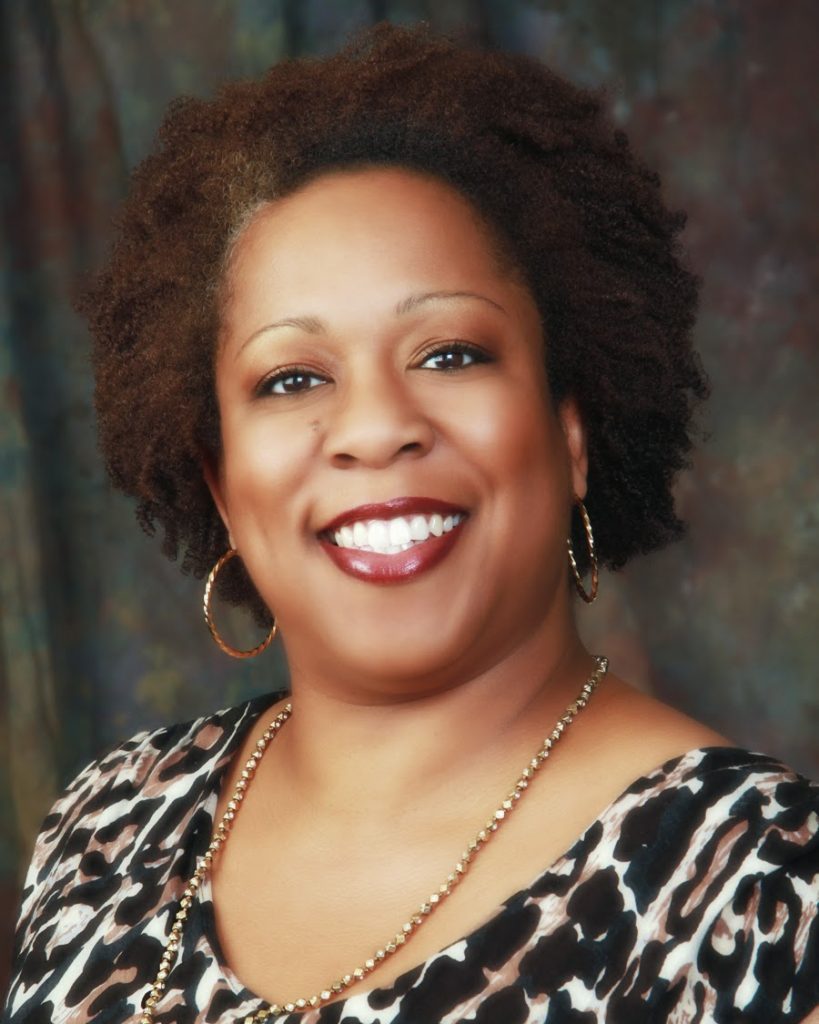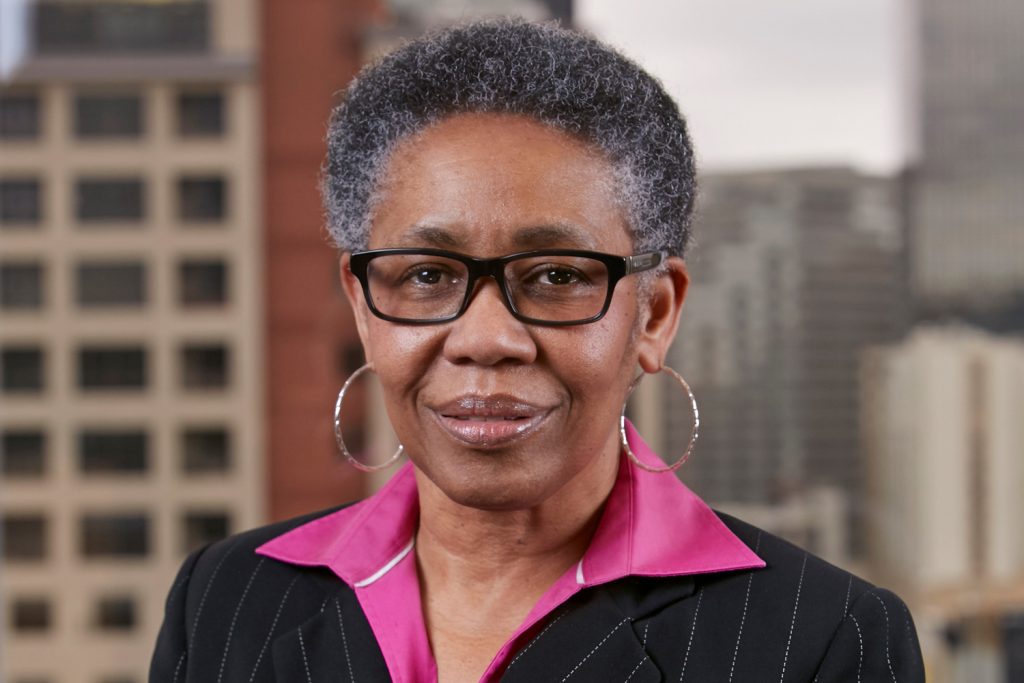Jason Sandford
Jason Sandford is a reporter, writer, blogger and photographer interested in all things Asheville.
By Sally Kestin,
AVL Watchdog
The CEO of the YWCA of Asheville has quit, becoming the second Black woman in a month to leave a high-profile job with a mission of improving racial equity in the city.
Libby Kyles resigned Sept. 18, a little more than a year after being selected to run the century-old women’s organization whose primary role is racial justice.
Her departure follows the resignation of Kimberlee Archie, the city’s first equity and inclusion manager, who left in August.
Kyles, an Asheville native and former teacher, declined to comment. YWCA spokeswoman Catalina Slater said the resignation, submitted late on a Friday afternoon, came as a surprise.
“She’s a hard worker, puts a lot of love into her mission,” Slater said. “And she’s co-founder/leader of the recently formed Black Asheville Demands and vice chair of the board of directors at Peak Academy,” a charter school for disadvantaged children.
“We respect her work and wish her the best,” Slater said.

Libby Kyles, former CEO of the YWCA of Asheville.
The resignations of two prominent African-American women come at a crucial time in the city’s racial reckoning. Thousands took to the streets this summer to protest police brutality and flooded City Hall with calls and emails demanding a restructuring of policing to end racial discrimination.
And Asheville became one of the first in the nation to pass a reparations resolution, committing to make amends for slavery and segregation with investments to increase Black homeownership, business ownership and career opportunities.
Archie, who would have figured prominently in carrying out the reparations work, is skeptical the city can meet its commitment. “I just don’t believe it’s going to happen,” she said.
She spoke in-depth with AVL Watchdog, providing previously undisclosed specifics about resistance she encountered trying to advance equity in city government and the reaction by those in charge.
‘Bobblehead effect’
Archie came to Asheville in 2017 from Charlotte and had been a consultant promoting “anti-racist and equitable outcomes.” She previously worked in Seattle for the city and United Way.
Her new position in Asheville grew out of a long-range plan passed by the City Council in 2016 with a goal of creating racial equity “so that city government would not continue to perpetuate treating one group differently than another,” Archie said.

Kimberlee Archie, former head of the Asheville Office of Equity and Inclusion
“It was about looking at our own policies, practices and procedures, our own budget, and understanding: how do those things perpetuate segregation, perpetuate discrimination, perpetuate bias?” she said.
Archie helped conduct salary studies, held equity training sessions and met with city department heads. She initiated an assessment of the city’s hiring, training and overall performance promoting equity and inclusion.
While some in the city embraced the work, she said, others didn’t.
“I never got any direct pushback,” Archie said. “What I describe it as is kind of like the bobblehead effect. We’d be in meetings …and people’s heads are nodding as if they are in agreement. However, their actions didn’t back that up.”
Those departments included transportation, water and public works, she said.
Public Works Director Greg Shuler “spoke as if he wanted to participate. He kept us engaged in conversation,” Archie said. “But we didn’t see anything happening.”
Archie described the public works staff as a “huge, old boys’ network.”
“If I was judging or pointing out people that I thought were racists, you know, active racists, a lot of them are in the public works department,” she said. “We heard from people of color. We heard that there was blatant racism going on down there. … We heard from staff who are part of the LGBTQ community saying that they’re homophobic.”
Shuler said in a statement: “Where we’ve seen specific issues we have tried to quickly address them with employees…Cultural change is slow and there is more work to be done. However, our team remains committed to creating an inclusive workplace for all of our employees.”
Mayor Esther Manheimer told AVL Watchdog she was unfamiliar with the complaints but said that “creating an office of equity and inclusion is a novel concept” in local government. “What we’re trying to do is transform what’s really a traditional entity and rid it of systemic racism, and I don’t expect that to happen overnight and I don’t expect that to happen without resistance in some areas.”
Archie said she encountered both resistance and systemic racism in the Police Department. She’d been on the job less than a month when police stopped Johnnie Rush, a Black man, for jaywalking and brutally beat him. The incident remained hidden from the public for six months until the Asheville Citizen-Times obtained body camera video showing Officer Chris Hickman choking Rush and repeatedly punching him in the head. Rush survived the beating and filed a complaint; Hickman resigned and later pleaded guilty to criminal charges.
“If Mr. Rush hadn’t made the complaint, it probably never would have come to light that he was beaten the way that he was over being a pedestrian,” Archie said. “Although Mr. Hickman was the individual that beat Johnnie Rush, he was part of a system that really pretty much supported him.”
Archie said that as in all police departments, there are good people. “But there are also people that perpetuate white supremacy culture, racism, and …the way the laws and the policies are made, it allows them to get away with” committing violent and racist acts.
Archie said she met with then Police Chief Tammy Hooper about ways to address bias and racism. “I didn’t see anything on the police department’s part of implementing anything,” Archie said. “She always came up with reasons why they couldn’t.”
Hooper resigned several months after the Rush beating. She could not be reached for comment.
Asheville is on its second police chief since Hooper, but Archie said she believes the culture in the department hasn’t changed.
“It’s the same people there,” she said. “You can’t just take one person out of the equation and think that it’s going to change the outcomes, whether it’s the chief or not.”
Chief David Zack, who started in February, said in a statement to AVL Watchdog: “While we didn’t have the opportunity to work together closely, [Archie] never mentioned her concerns to me. I would have welcomed the opportunity to have these open discussions. I believe that the women and men who work at APD are striving for an inclusive environment that we can all be proud of.”
This summer, outrage over the police killing of George Floyd, a Black man in Minneapolis, intensified demands for racial justice in Asheville. Protesters marched through downtown, and activists called for a restructuring of the Police Department, reducing its budget by 50 percent and investing money in Black communities.
The city held a series of public meetings on “reimagining public safety.” Last week, the City Council voted 5-2 to reduce the police budget — by less than 3 percent. The city is shifting some police positions and responsibilities to other departments, including animal and noise complaints.
Archie said she was disappointed in the Council’s response.
“Are we really seeing a lot of disparities when it comes to animal control? How is that going to really improve the lives or improve the conditions in our community when it comes to our racial disparities?” she said. “I don’t think we were ever going to get to 50 percent of a reduction in policing, but they could have done way better than three percent.”
And despite the focus on racial equity, she said, the city budget approved by the Council included no additional funding for the Office of Equity and Inclusion.
The mayor said the Covid pandemic caused revenue shortfalls throughout the city budget and that rethinking policing is “a long-term process.” She said Chief Zack is “completely on board” with looking at alternatives and is among a group of city leaders studying “the Eugene, Oregon model for a mobile crisis unit that helps address homelessness, drug addiction, attempted suicides” and other problems police would normally handle.
Archie’s resignation came abruptly and just six weeks after the City Council approved the reparations resolution that made the front page of the New York Times.
The resolution included creating a commission to make recommendations. It also contained a provision that said the Council “fully supports its equity department, staff and its work, and encourages the city manager to utilize their talents when forming policy and programs that will establish the creation of generational wealth and address reparations due in the Black community.”
But Archie said that before she left, she “never heard from anyone” in City Manager Debra Campbell’s office.
“We were getting emails from constituents, residents of Asheville, saying, ‘I want to be on the task force,’ “ she said. “And I kept sending stuff to the city manager’s office because I said, ‘No one has given me any kind of indication that they want us to work on it.”
Manheimer said that Campbell had been busy working on “this robust process of looking at the budget with the view of reimagining public safety.”
“We understood that there would be limited time and resources and we expected her to prioritize the budget revisions before moving forward on the reparations resolution,” the mayor said.
‘Uphill climb’
Archie said she had made her decision to leave by the end of 2019, believing she could have a “bigger impact” through her consulting work and because of a “lack of support” from Campbell. Archie had been hired by the previous city manager, Gary Jackson, who was fired after the Rush beating.
Archie said Campbell did not do enough to ensure that departments followed through on equity measures or hold managers accountable. And she said Campbell was hesitant to intervene with uncooperative departments because she preferred managers work out problems among themselves.

Asheville City Manager Debra Campbell
Campbell declined a request for an interview but issued a statement that said, “Archie was instrumental in raising awareness and beginning the work of equity and inclusion culture change at the city. Under her leadership, the city of Asheville has made significant progress. But we also recognize that culture change is hard, it takes time, and this is not an easy task. I agree that more work needs to be done and we are committed to continuing to grow and to fully incorporate this value into everything that we do.”
Archie said she expected the job would be challenging. “I feel like not only was it an uphill climb, but it was also like shoes were removed and a backpack with rocks was put on my back by not having all the support and not having the accountability at the highest levels of city government.”
By the time she left, Archie said a majority of city department heads supported equity. She said she also believes City Council members were “truly interested and care about how equity is being advanced by the city government.”
“But as far as the communication loop is concerned, there’s a serious division there,” she said. “They need to do a better job of checking up that the policies they’re putting in place are being operationalized within city government, and the person that they should hold accountable for that is the city manager.”
Councilman Keith Young, a leading proponent of creating the equity and inclusion department, has called for a review of Campbell following Archie’s resignation. He did not respond to a request for comment, nor did the other five City Council members.
Manheimer opposes a review of Campbell and said she has “full confidence” in her. “We hired her in part because of her dedication to the issue of equity.”
The mayor said Asheville has been at the forefront of “dismantling systemic racism.”
“Is it a very difficult task?” Manheimer said. “Yes, and have other communities managed to move faster than us? Probably, but it’s not for lack of effort.”
AVL Watchdog is a nonprofit news team producing stories that matter to Asheville and Buncombe County. Sally Kestin is a Pulitzer Prize-winning investigative reporter. Contact us at [email protected].





























